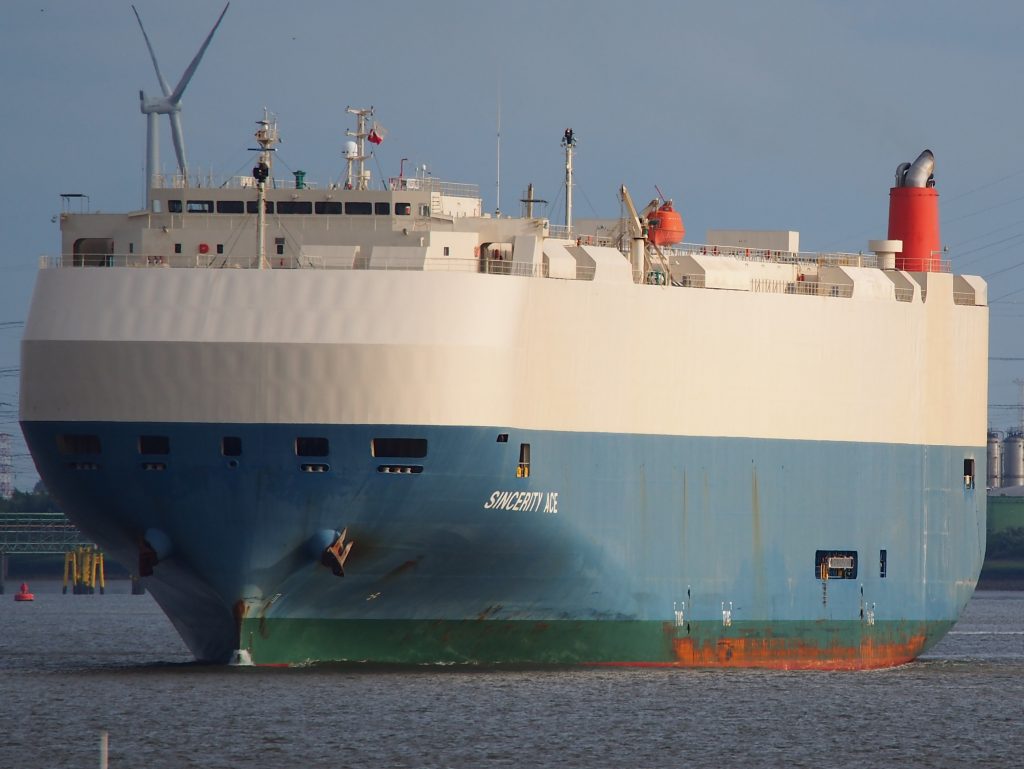Coast Guard Responds to Vessel Fire
The Coast Guard and good Samaritans aboard several commercial vessels are responding to a reported vessel fire on the 650-foot Sincerity Ace 1,800 nautical miles (2071 statute miles) northwest of O‘ahu on the high seas, Monday, Dec. 31, 2018.
“The distance involved here requires any and all available support, we thank the crews of the commercial vessels for volunteering to assist and have Coast Guard air support en route,” said Petty Officer 1st Class Les Elliott of JRCC Honolulu.
One commercial vessel, the Green Lake, is on scene and assessing possible assistance and rescue options, with three additional commercial vessels and a Coast Guard HC-130 Hercules aircrew en route.
The Coast Guard Joint Rescue Coordination Center (JRCC) in Honolulu received notification from JRCC Japan at 1:04 a.m. of the situation. Watchstanders in Honolulu immediately issued a SafetyNet broadcast requesting the assistance of vessels in the area and directed the launch of the Hercules from Air Station Barbers Point.
The master of the Sincerity Ace reported a significant vessel fire, ongoing firefighting efforts, and an intent to abandon ship. The crew was able to launch one of the life rafts, and four of the 21 mariners abandoned ship with lifejackets. It is unconfirmed if they reached the life raft upon entering the water. The remaining 17 crew are reportedly continuing to fight the fire.
“We are thankful no injuries have been reported but are cognizant a lot is happening, and that may change at any time,” said Elliott.
Weather is reported as 17-foot seas with winds at 26 mph.
The Sincerity Ace is a Panamanian-flagged car carrier and was on a voyage from Japan to Hawaii. The Green Lake is a 655-foot U.S.-flagged car carrier traveling from Japan to the U.S. mainland. The second vessel is a Panamanian-flagged LNG tanker, the 968-foot SM Eagle on a voyage from the U.S. mainland to Korea.
Two additional vessels, a car carrier, and a tanker are en route. The Coast Guard is also launching a second Hercules from Air Station Barbers Point. Both Hercules airplanes are equipped with self locating datum marker buoys to track positions and additional search and rescue equipment such as life rafts and survival gear that can be dropped to survivors. In addition to the Coast Guard aircraft, the U.S. Navy will be providing a fixed wing aircraft to assist in search efforts. Other military surface and air assets are being considered.
The commercial vessels involved are part of the AMVER, or Automated Mutual-Assistance Vessel Rescue System, a worldwide voluntary reporting system sponsored by the United States Coast Guard. It is a computer-based global ship reporting system used worldwide by search and rescue authorities to arrange for assistance to persons in distress at sea.
Sponsored Content
Comments






_1770333123096.webp)


